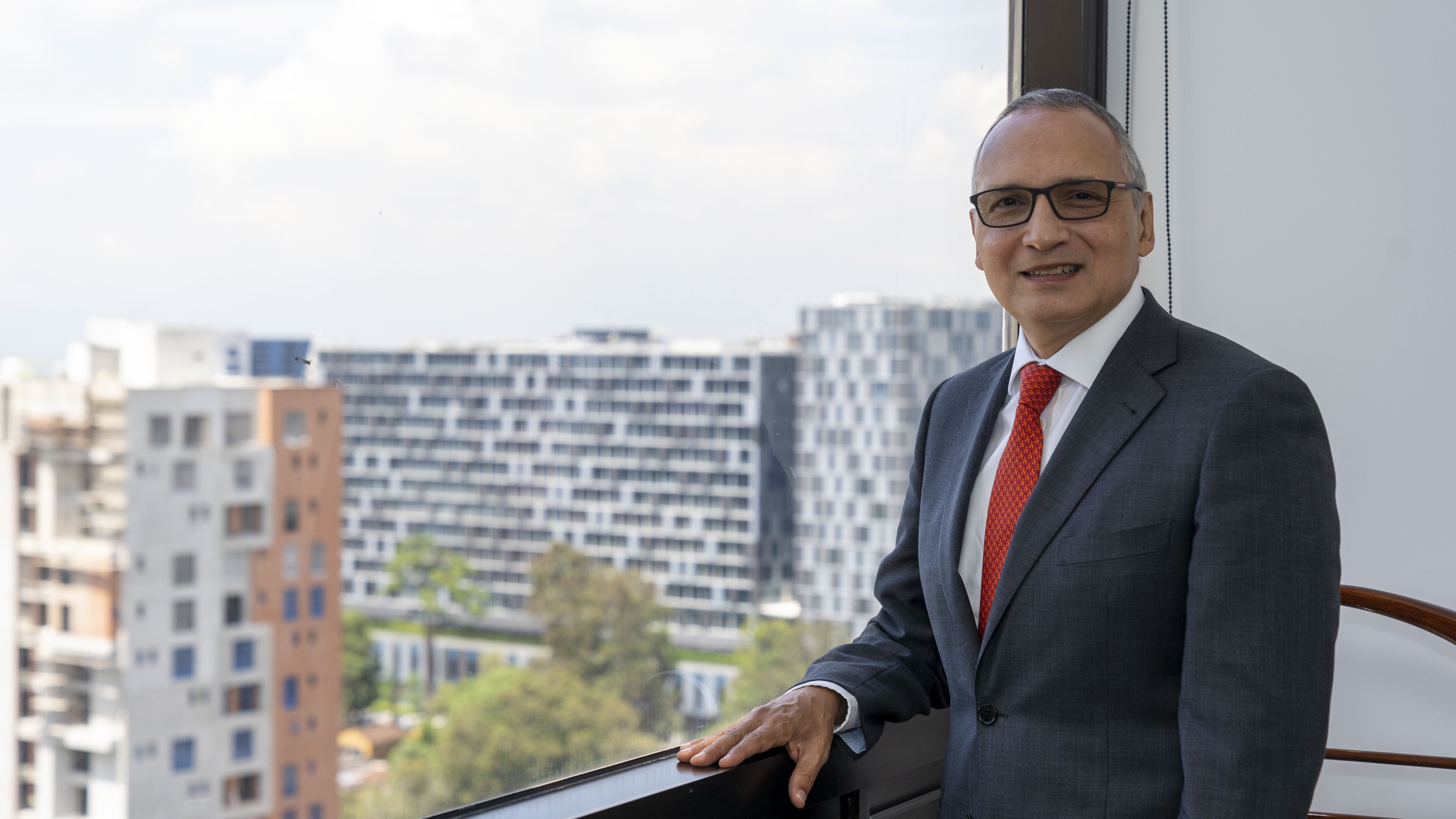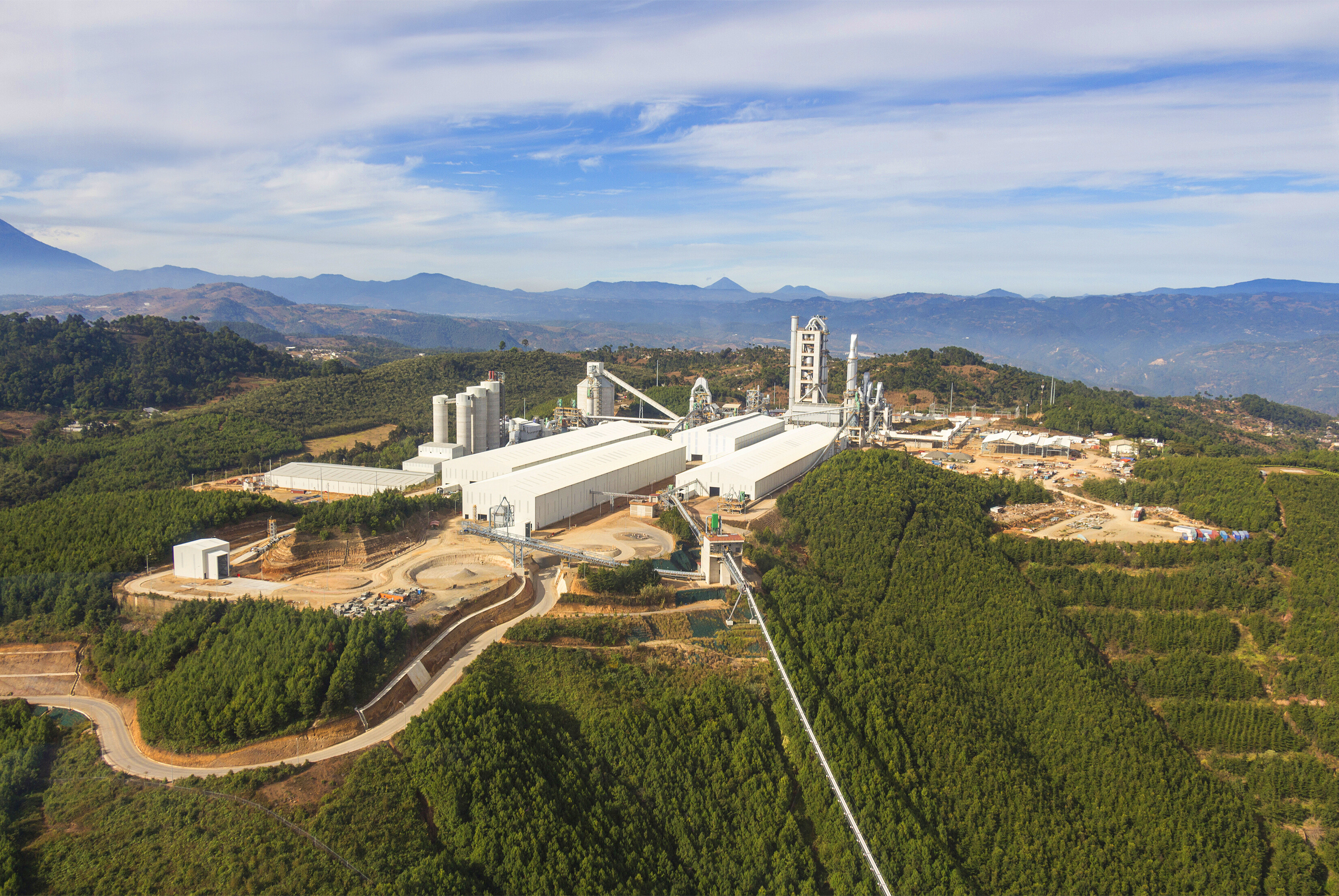Central American Cement Giant Bets Big on Building Boom
José Raúl González, CEO of Progreso, explains why investors have nothing to fear from Guatemala's new government and highlights the emerging opportunities in Central America...

Please give us an update since our readers last heard from Progreso in 2022.
José Raúl González: We have exceeded the expectations that we had back then. We’ve integrated our new acquisitions across Central America, so that we now have operations in Guatemala, Belize, El Salvador, Honduras, Costa Rica, Panama, and Colombia.
It is always a challenge to incorporate new companies and our two most recent acquisitions were in El Salvador and Costa Rica. We increased our workers to 5,500 from 4,500, so it was a significant expansion. But now that integration process is complete and our new, larger company is ready to provide the Central American people with the products they need to build a better future.
The Central American market is made up of small, poorly-connected markets; is it difficult to make regional expansion work?
JRG: It is true that Central America is complex because it’s a relatively small market. It’s not the ideal place for a large, global corporation that needs to invest half a billion dollars for a business to have any impact on its bottom line. Those global corporations can find opportunities of that scale in Brazil, Mexico, or the US. In Central America, you find interesting opportunities for $50million, $100million or $300million.
It’s a small region, overlooked by the massive corporations but we think small is beautiful. Nobody loves Central America more than the Central Americans and we know how to operate successfully in small markets. This is our backyard and we are used to dealing with the political and economic ups and downs. You can definitely develop good business in the region.

The operational dynamics are different in each country. For example, Costa Rica might have the highest labour costs in the region, but I wouldn’t say it’s the most expensive country because it also gives back a really good productivity. So, we don’t look at absolute costs, but rather the relative number of what output you get for what you put in.
The advantage of having plants dotted around the region, is that we can use that scale to respond to different needs in each market. For example, Guatemala provides cement for El Salvador, Honduras and Belize, while we export clinker to Nicaragua from Costa Rica. There is no denying that logistics within Central America can be expensive –the geography and infrastructure certainly don´t help. I think if we saw streamlined customs processes between countries it could kickstart a logistics revolution in the region. The production of cement has a natural market radius, because of its weight, but roads, geography, and customs all play a role in determining how wide that is.
Where are the most exciting opportunities?
JRG: Every country in Central America is different, with its own opportunities, however, you can find consistent themes across them. Belize is very small but it is investing more in infrastructure and we have responded by building a grinding mill for clinker. El Salvador and Honduras have a strong tradition of investing heavily in infrastructure, which is exciting. Moreover, the infrastructure improvements in those countries increase the logistical efficiency of our operations, which is another benefit. Costa Rica is interesting because it’s a hub for foreign direct investment – as opposed to the remittances, which is what most of the rest of the region receives – while Panama´s historically-strong infrastructure programme is regaining momentum. So, the mood in the entire region is one of optimism and building infrastructure. And that’s where Guatemala also seems to be heading with this new government.
Infrastructure is not a right-wing or left-wing issue but a common-sense improvement that brings more immediate benefits than any other form of public spending.
Our Colombian export office is a small operation to test the market. Colombia is huge – roughly the size of all Central American countries combined-, so we are just learning from it and exploring how we could service it. We’re lucky that in Guatemala the exchange rate is incredibly stable, which makes it easy for us to import any materials in dollars. But operating across different markets has taught us how to manage businesses in economies with more volatile currencies. So, for example, in Colombia, some material is sourced from our Central American operations, while some is built elsewhere to allow us to hedge volatile logistical or currency costs.
It's hard to plan exactly where cement will be needed next, because it can depend on economic factors, or political decisions, that are not easy to predict. But overall, we are positive about the markets that we service because of the infrastructure deficit across all markets. We have enough capacity to grow organically for quite some time without future acquisitions. Central America will keep us busy.
Will the new government be good for the Guatemalan economy?
JRG: The new administration is still in the very early stages – so it’s hard to give a serious evaluation – but we expect this government to be good for the local economy. The main thing was for the key institutions of the Guatemalan Republic – the legislative, judicial, and executive branches – to ensure a peaceful and effective transfer of power. With that taken care of, it has been great news for business and everyone. The private sector is glad that democracy worked and that the results of the election were respected. Now we must focus on supporting the new government, which has a huge challenge ahead of it to fulfil its election promises; specially on its core promise: to fight corruption. That is the main mandate and people expect a clean administration.
In terms of government spending, I don’t think it’s different to most other governments in Latin America. The majority of politicians want to spend big and win the electorate’s favour, so this administration shouldn’t be that different. But once the reality of governing kicks in, I don’t think that President Arevalo will want to preside over a devalued Quetzal or increased inflation. Indeed, in his campaign, Arevalo promised to govern without raising taxes and to keep spending within budgeted funds.
The interesting thing about Guatemala is that the Central Bank is not allowed to buy government debt or print money. So, if Banguat can’t do that, then the only way the government can spend more than it receives through taxes is to go to the markets and convince local or international investors to lend it money. That in turn creates another set of checks and balances because the government has to persuade investors that the money will be repaid.
Will the new government drive cement demand?
JRG: This government campaigned on an infrastructure platform. One of its main pledges is to improve Guatemala’s network of secondary, dirt roads. Progreso has developed a product that enhances the life of a dirt road to withstand three winters (rainy seasons), which can help the government deliver on its promises to the Guatemalan people. We are also part of a programme called “HogaRES”, which aims to replace 100,000 dirt floors with concrete floors in rural homes in the next 10 years to foster healthier and more resilient housing. In Guatemala alone there are close to 850,000 homes that still have dirt floors. These floors lead to all sorts of illnesses that ruin lives and cost the state money and productivity, so again this is an area where we can help the government improve life for the poorest Guatemalans.

Infrastructure is not a right-wing or left-wing issue but a common-sense improvement that brings more immediate benefits than any other form of public spending. At this stage of Guatemala’s development, infrastructure can be an even more powerful force for good than education – because it takes generations to teach new teachers and students-, while a new road or house can help poor people immediately.
I think the new government is fortunate that there is a ready-made infrastructure plan as part of the “Guatemala Moving Forward” programme that has been developed by the private sector and other public institutions. Of course, this is not the first administration to try to build infrastructure in Guatemala, but if this government is less corrupt than previous ones, then it might have more success. Our hope is that projects will get built because they represent good value for money for Guatemala – not because somebody, somewhere received a bribe. It is a leap of faith, but Arevalo is an honest man, whose career until now has been conducted without a stain on his character. He seems to have appointed honest ministers, so hopefully this is the government that can start building the infrastructure that Guatemala needs.
What innovations can speed up infrastructure development in Guatemala?
JRG: This government has announced that the UN Office for Projects Services (UNOPS) will handle some of the large infrastructure projects. That is positive but ultimately the companies that build them will be Guatemalan. If we want to improve our country, Guatemalans need to take the lead.
In our capital city, Mayor Ricardo Quiñonez, has streamlined building regulations, helping the private sector work through a backlog of projects that had been held up by permitting. At Progreso we are innovating too. We developed the urban module for social housing, which is a six-story building made up of 60 mt2 apartments that are designed for low-income Guatemalans. Key design features, such as no parking lots and no elevators, helped to reduce costs so that the final product was made accessible for as little as $400 per month. The concept has now been expanded to Guatemala’s second-tier cities in the interior that are growing quickly. The demographics of the country suggest that housing demand is set to rocket.
By 2030, we will be the largest building materials company in the region and we will be a major player in the infrastructure development of the countries where we operate. We believe that by helping to build infrastructure we are improving the lives of all Central Americans. That matters to us at Progreso because we want to grow in line with the vision of our founder, Carlos F. Novella. We don’t just want to grow a company, we want to fulfil our founder’s vision and improve the lives of the people around us, striving to generate Progreso (progress) in everything we do.